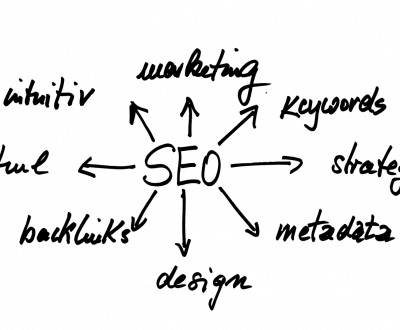The Importance of Website Speed: Unveiling the Need for Swift Loading Images and Content
In the digital age, where the internet has become an integral part of our daily lives, a website’s speed can significantly impact its success. The speed at which a website loads its images and content plays a vital role in shaping user experiences, influencing search engine rankings, and ultimately determining the success of an online venture. In this comprehensive guide, we will explore the importance of website speed, the role of swift loading images and content, and how you can optimise your website for maximum performance.
The Need for Speed
- Enhanced User Experience: In an era where patience is scarce, users demand swift, responsive websites. Slow-loading websites frustrate visitors and drive them away. On the other hand, fast-loading sites provide a smooth and enjoyable user experience.
- Lower Bounce Rates: A website’s bounce rate is the percentage of visitors who leave after viewing only one page. Slow-loading sites tend to have higher bounce rates, which negatively affect a website’s overall performance and search engine rankings.
- Improved SEO: Search engines like Google consider website speed as a ranking factor. Fast-loading websites tend to rank higher, making speed optimisation crucial for search engine optimisation (SEO).
- Mobile Responsiveness: With the growing use of smartphones, mobile responsiveness is crucial. Slow-loading websites can be particularly frustrating for mobile users, causing them to abandon a site quickly.
The Role of Images in Website Speed
- Image File Size: Large, high-resolution images can significantly slow down a website. Optimising and compressing images can reduce loading times without compromising quality.
- Lazy Loading: Lazy loading is a technique that loads images only when they come into the user’s view. This reduces the initial loading time and improves the user experience.
- Image Format: Choosing the right image format can make a difference. Formats like WebP are known for their smaller file sizes while maintaining high quality.
The Role of Content in Website Speed
- Content Delivery: Content delivery networks (CDNs) distribute website content to multiple servers around the world. This reduces the physical distance between the user and the server, enhancing content delivery speed.
- Caching: Caching stores frequently accessed website data on the user’s device, reducing the need for the server to fetch it repeatedly. Caching improves load times for returning visitors.
- Minimising HTTP Requests: Reducing the number of HTTP requests a website makes can significantly improve loading speed. Combining CSS and JavaScript files and reducing unnecessary elements can help achieve this.
Optimising Website Speed: Practical Tips
- Image Optimisation: Use image optimisation tools to compress and resize images while maintaining quality. Implement lazy loading for images further down the page.
- Content Delivery Network (CDN): Consider using a CDN to distribute website content. CDNs reduce latency and ensure content is delivered quickly to users worldwide.
- Minimise Server Response Time: Invest in quality hosting and ensure your server responds quickly. Slow servers can hinder website speed.
- Browser Caching: Enable browser caching to allow returning visitors to load your website faster by storing static resources in their browser.
- Optimise Code: Minimise the use of unnecessary code, scripts, and plugins. Ensure your website’s code is clean and efficient.
FAQ: Common Questions About Website Speed and Optimisation
Q1: How does website speed affect search engine rankings?
A: Website speed is a known ranking factor for search engines. Faster-loading sites tend to rank higher in search results.
Q2: Are there tools to test website speed?
A: Yes, tools like Google PageSpeed Insights and GTmetrix can analyse your website’s speed and provide recommendations for improvement.
Q3: Can a slow website be optimised for speed?
A: Yes, a slow website can be optimised by reducing image sizes, implementing lazy loading, using a CDN, and improving server response times.
Q4: What impact does mobile speed have on SEO?
A: Mobile speed is crucial for SEO, as Google prioritises mobile-friendly websites. Slow-loading websites on mobile devices can negatively affect search rankings.
Website speed is not a mere technicality; it’s a critical aspect of your online presence. Slow-loading websites can deter users, lower search engine rankings, and harm the overall success of your online venture. By optimising your website’s images, content, and server response times, you can ensure a swift and enjoyable user experience, leading to improved SEO rankings and increased user engagement. Prioritising website speed is a smart investment that pays dividends in the digital world.
Smarter Wiser Optimise Website Speed Load Times
Begin your SEO journey with a FREE SEO Audit from Smarter Wiser. By identifying areas for improvement and crafting a customised strategy, you can start attracting more clients and outperforming your competitors by simply optimising your website images and content.
About us and this blog
We are a digital marketing company with a focus on helping our customers achieve great results across several key areas.
Request a free quote
We offer professional SEO services that help websites increase their organic search score drastically in order to compete for the highest rankings even when it comes to highly competitive keywords.
We offer a FREE Website Audit. No Charge, No Catch, simply add your website, the email address to send report. We will send you a website audit report highlighting any website issues, broken links, alt tags missing, duplicate titles etc along with a Google Analysis of your content.
Recent Posts
All Website Tags
- Advanced SEO Analytics
- AI and Machine Learning in SEO
- Algorithm Updates and SEO
- Algorithm Updates and SEO News
- Alt Text (Alternative Text)
- Analytics and Insights
- Anchor Text
- Audit
- Backlink Monitoring and Management
- Backlinks
- Black Hat SEO
- Brand Awareness
- Canonical URLs
- Content Creation Chronicles
- Content Marketing
- Content Marketing Corner
- Content Marketing for SEO
- copywriting
- CTR (Click-Through Rate)
- Digital Authority
- Digital Diagnostic
- Digital Diagnostic for SEO
- Digital Health Assessment
- Digital Marketing Trends
- Domain Authority DA
- Duplication
- E-Commerce SEO
- Email Marketing Mastery
- External Linking
- Google Core Update
- Google My Business GMB
- Heading Tags (H1, H2, H3, etc)
- Healthcare SEO Strategies
- Indexing
- Internal Linking
- Internal Linking Strategies
- International SEO Strategies
- Keyword Analysis and Optimisation
- Keyword Research and Analysis
- Keywords
- Link Building
- Link Building for SEO
- Link Building Strategies
- Link Building Techniques
- Link Building Tools and Tips
- Local SEO Spotlight
- Local SEO Strategies
- Market Research
- Marketing
- Marketing Mix
- Meta Tags (Title, Description)
- Mobile SEO
- Off-Page Optimisation
- Off-Page SEO
- On-page SEO
- Online Audit Insights
- Online Audit Insights for SEO
- Optimise Your SEO
- Optimise Your Website
- Organic Traffic
- Page Authority
- Page Load Speed
- Paid Search (PPC)
- Ranking
- Reputation Management and Online Branding
- Search Engine Optimising Service
- Search Ranking Analysis
- SEO
- SEO Analytics and Reporting
- SEO Diagnostic Lab
- SEO Evaluation Toolkit
- SEO for Beauty
- SEO for Blogs and Content Platforms
- SEO for Hair Salons
- SEO for Spas
- SEO for Startups
- SEO for WordPress Websites
- SEO Health Assessment
- SEO Health Check
- SEO Performance Checkup
- SEO Success Secrets
- SERP
- Site Performance Analysis
- Social Media Integration for SEO
- Social Media Strategies Unveiled
- Target Audience
- Technical SEO
- Technical SEO Demystified
- Video SEO for YouTube
- Web Presence Checkup
- Website Health Check
- White Hat SEO









